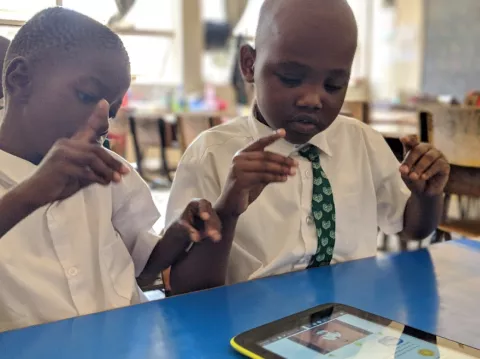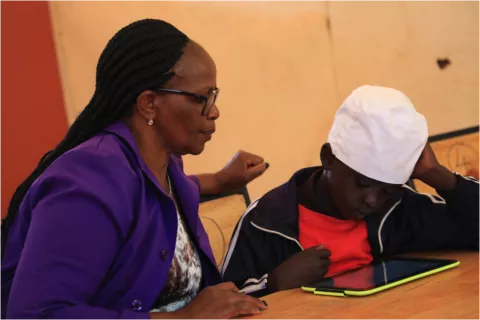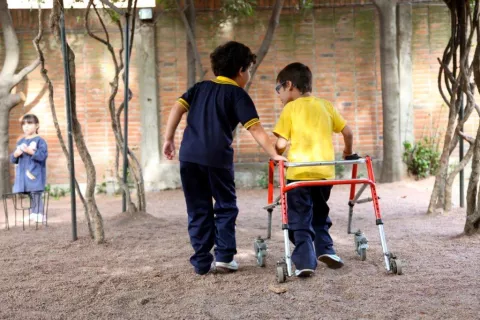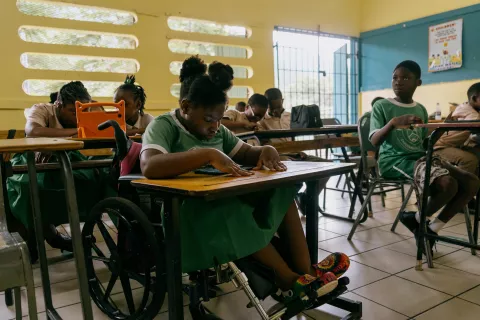Kenya Pilot - Human Interest Story Part 3
Making digital learning accessible for learners who are blind or have low vision
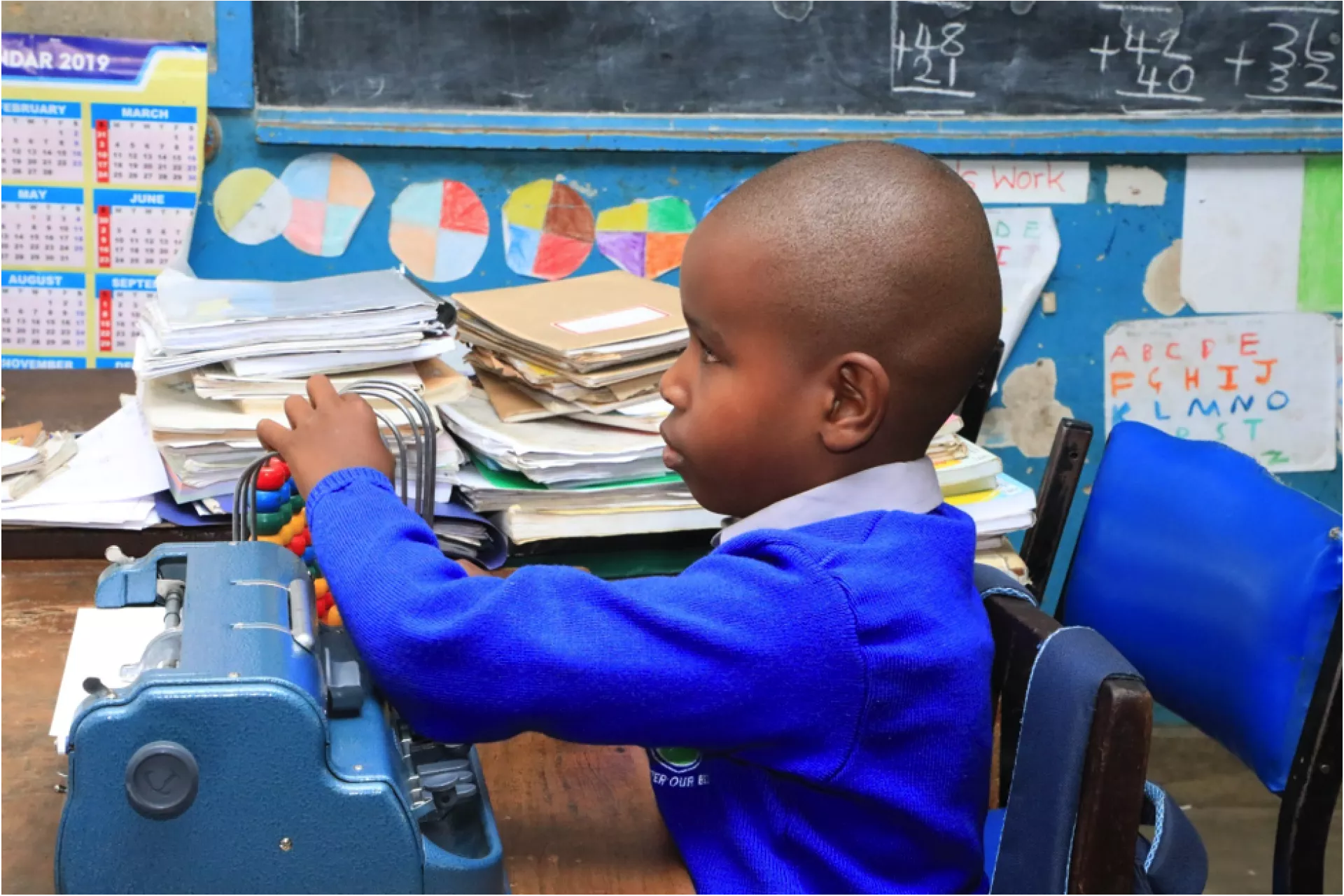
- Available in:
- English
- Español
Making digital learning accessible for learners who are blind or have low vision
“We went to Mamba village yesterday. I was very excited to be outside the classroom and interact with the animals there.” That is how we were welcomed to Kilimani Primary School in Nairobi, Kenya. Six-year-old Wesley Muturi is excited to be in school and would like to become a pilot, an inspiration that came about when he first flew to Malindi.
Wesley narrates, “I liked the laptop I used. It was the first time I was using a laptop. When I listened to the audio, I heard things that I like. They were topics related to plants, water, rivers and animals. I like topics related to environmental sciences and hygiene.”
Wesley has the opportunity to study in a mainstream class together with his peers without visual impairment. His class teacher, Madam Beth says that he is a very bright boy and likes learning. “We have tried to make sure that children sit with him in turns during various times of the term. This allows his classmates to work with him. They assist him in reading out the textbooks and to read what is on the board,” she explains.
“I told my desk mate what I learned when I used the laptop. She was very excited to listen to my story. However, I would like the laptops to be customized in such a way that it is a bit louder so that I can hear better. Our computer teacher is also very supportive. He helped me to navigate the computer,” Wesley says.
For Wesley this new way of learning is exciting for him and he would like to see more subjects being integrated in the laptop. For example, he is learning about new adjectives. “I would like to also learn English using the laptop. I learned how to spell glowing during the last English lesson. The teacher said it means being smart,” he quips.
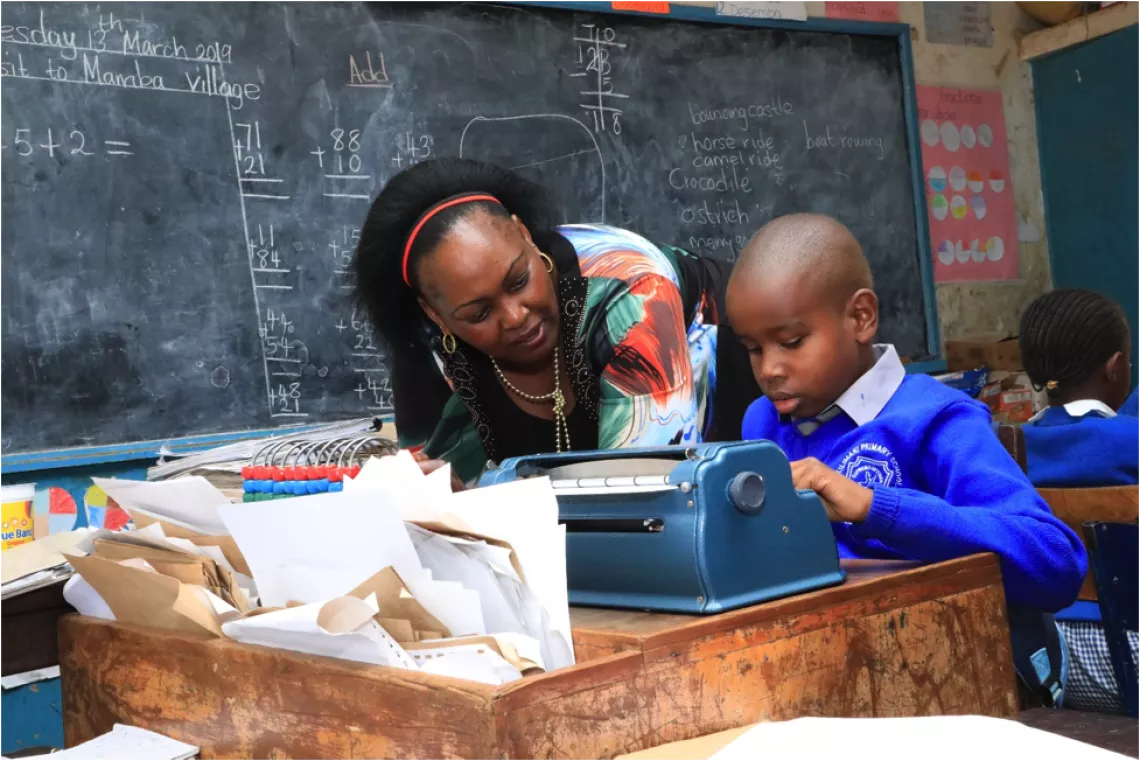
It is important to note that for learners to fully benefit from the digital accessible textbook, the teachers must be well trained to use the laptops. They must be equipped with Information, Communication, and Technology skills. They need to be trained to learn how to best identify the needs and strengths of a learner with disability, especially those with visual impairment like Wesley. Through a formal lesson, the learner can adequately use a laptop to learn with other learners.
7-year-old Amos Manyasi is partially blind. He can see things and words that are very close to him. “I have used my father’s smartphone before. I use it to play games. My favorite is the car racing game,” he says. For learners like Amos, this is an indication that if digital textbooks are customized in a way that interests them, they will learn and engage with their peers.
Amos could hear topics related to plants, river and rain. “I could navigate the screen on my own. The font was okay for me, but I would like for it to be bigger and more spaced so that I can read faster. I would also like to see more pictures and for the laptop to have louder sound,” he explains.
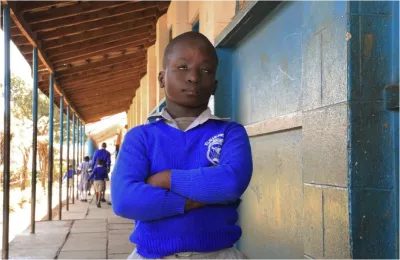
“I like going to a mainstream class because the other children help me learn mathematics. I also enjoy competing in athletics and other sports like football. I like my class teacher Madam Sabina because she helps me to read. My mother and my uncle, a teacher, help me do my homework at home. I would like to learn subjects on hygiene too,” he concludes.
Kilimani Primary School is one of the schools in Nairobi striving to move towards inclusive education. The school is deliberate at ensuring that learners with disabilities like Wesley and Amos are enrolled in mainstream classrooms, learning with their peers without visual impairment. It is envisioned that through innovative learning tools like the digital accessible textbook, Kilimani Primary School and other schools across Kenya will be supported with necessary resources to provide inclusive education not only for learners with disabilities, but for all learners.
“I like going to a mainstream class because the other children help me learn mathematics."

